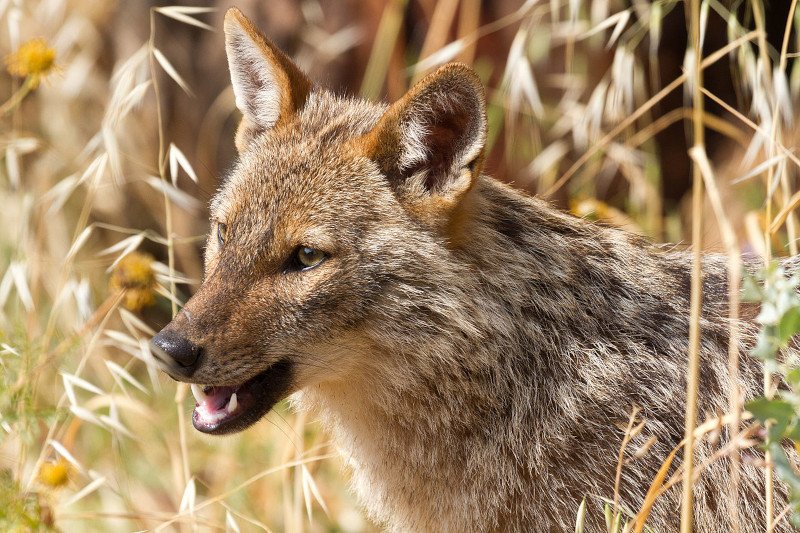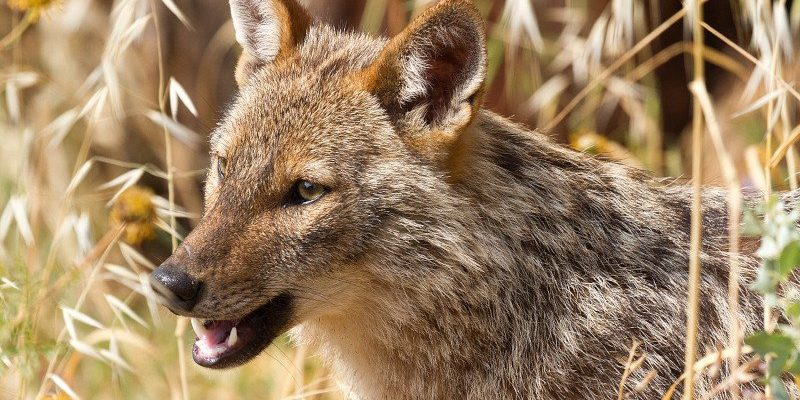
Imagine sitting in a café, sipping your coffee, and having a pleasant chat about wildlife. You might be surprised to learn that even though golden jackals are often portrayed as sneaky scavengers, their relationship with humans is a bit more complex. From occasional conflicts to fascinating behaviors, there’s a lot to unpack. Let’s explore this topic and separate fact from fiction.
Understanding the Golden Jackal’s Behavior
Golden jackals are highly adaptable animals. They thrive in diverse environments, including deserts, mountains, and grasslands. This adaptability means they often come into contact with humans, which can lead to misunderstandings. They have a keen sense of hearing and smell, helping them locate food even in tricky conditions. Here’s the thing: their diet consists mainly of small mammals, insects, and fruits. However, they won’t hesitate to scavenge from human trash, leading to potential conflicts.
One reason people might perceive jackals as dangerous is their cunning nature. Picture this: a jackal darts through the underbrush, its golden fur shining in the sun, looking for a meal. Sometimes, they hunt alone or in pairs, using teamwork to catch prey. This behavior can give the impression that they are aggressive, but in reality, they’re just trying to survive.
So, can their cleverness be a danger to humans? That’s where things get interesting. Generally, golden jackals are wary of humans and would rather avoid confrontation.
Do Golden Jackals Attack Humans?
It’s a common concern: “What if I encounter a golden jackal?” Honestly, attacks on humans are incredibly rare. In most cases, these animals are skittish and prefer to stay away from people. They can sense when someone poses a threat, and their instinct tells them to retreat. Think of them as those shy kids in class who hang back during group activities.
However, there are exceptions. If a jackal feels cornered or threatened, it might defend itself. But even in those situations, attacks are unlikely to result in serious injuries. It’s important to remember that golden jackals usually avoid direct encounters with humans. They’re more focused on finding food or caring for their young.
Another factor to consider is rabies. Like many wild animals, golden jackals can carry this virus. If a jackal appears unusually aggressive or erratic, it might be worth keeping a safe distance. Nevertheless, such instances are not common, and the likelihood of encountering a rabid jackal is low.
Golden Jackals and Livestock: A Tense Relationship
While golden jackals generally steer clear of people, farmers might tell a different story. These animals can pose a threat to livestock, particularly smaller animals like sheep and goats. Imagine a farmer waking up to find their flock disturbed—not a pleasant surprise! Jackals are skilled hunters and can sometimes target domesticated animals for food.
Farmers often employ various strategies to protect their livestock, such as fencing and guard animals. These methods can effectively keep jackals at bay, ensuring that both the jackals and the livestock can coexist peacefully. It’s a bit of a balancing act—where the needs of wildlife meet the realities of farming.
You might wonder if there are more humane ways to address these conflicts. Some regions have successfully implemented community programs that promote coexistence. These strategies can help reduce tensions while allowing golden jackals to thrive in their natural habitat.
The Role of Golden Jackals in the Ecosystem
Golden jackals play a vital role in their ecosystems. As scavengers and hunters, they help maintain balance in the food chain. By controlling the populations of small mammals and cleaning up carrion, they contribute to a healthier environment. It’s like being the cleanup crew in nature’s big party—they keep things tidy!
This role is essential, especially in areas where other predators are scarce. In fact, their scavenging habits can help limit the spread of disease by consuming dead animals that might otherwise become a health hazard. So, instead of viewing them solely as a threat, consider how they fit into the broader picture of nature.
It’s crucial to appreciate the value of golden jackals and their contributions to biodiversity. When we recognize the positive aspects of these animals, we can approach them with understanding and respect.
How to Coexist with Golden Jackals
If you live or work in an area where golden jackals are common, knowing how to coexist with them can be beneficial. Here are a few tips:
- Keep Distance: If you spot a golden jackal, admire it from afar. Avoid approaching or provoking it, as this can lead to unnecessary stress for both you and the animal.
- Secure Trash: Make sure to store your waste in sealed bins. This helps prevent jackals from rummaging through trash, reducing the chances of human-jackal encounters.
- Protect Livestock: As mentioned earlier, consider using fencing or guard animals to protect your livestock from potential jackal predation.
- Educate Others: Share information about golden jackals with your neighbors and community. Understanding these creatures can foster tolerance and reduce fear.
By taking these steps, you can help create a more harmonious relationship between humans and golden jackals.
In summary, golden jackals are generally not dangerous to humans. While they can occasionally cause issues with livestock, they are more interested in avoiding us than attacking. By understanding their behavior and role in the ecosystem, we can coexist peacefully with these fascinating creatures.
So, the next time you hear about golden jackals, remember they’re not just sneaky scavengers. They play an essential part in our natural world, and with a little understanding and respect, we can all share the spaces we inhabit. Isn’t it remarkable how wildlife, even the ones we might fear, can teach us about balance and coexistence?

